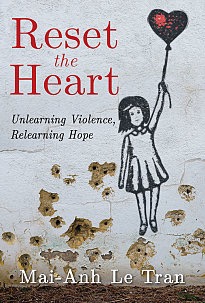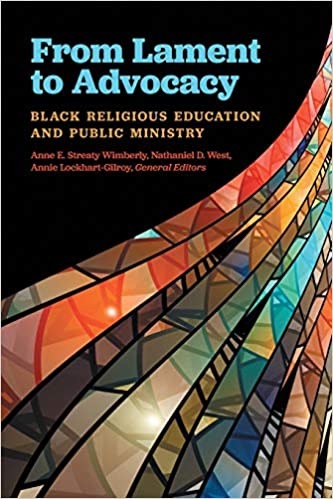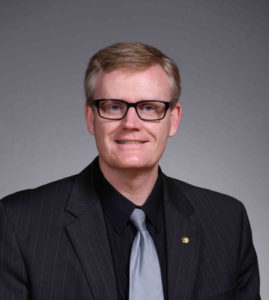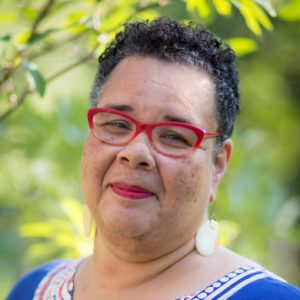racism
Select an item by clicking its checkbox
Thanks to the collegiality of Dr. Mitzi J. Smith and the generosity of the Wabash Center, I have the opportunity to engage in learning that moves beyond professional development to include personal transformation. This summer I will participate as a learner in an intensive that Mitzi will teach on The ...
Date Reviewed: June 17, 2021
I’ve been interested in the connection between culture and education for most of my adult life. My wife and I spent 8 years in pastoral work in Central Europe, and since 2005 my work with online education has brought me into intercultural spaces that include the intersection of multiple kinds of ...

Reset the Heart - Unlearning Violence, Relearning Hope
Date Reviewed: April 16, 2019
Mai-Anh Le Tran, an associate professor of religious education and practical theology at Garrett-Evangelical Theological Seminary, tackles a profound question in her book Reset the Heart: Unlearning Violence, Relearning Hope when she asks, “what does it mean to educate for faith in a world marked by violence?” Tran, who is a past president of the Religious Education Association, is an ordained elder of the United Methodist Church.
This intriguing volume about the problem of faith in a violent world begins in August 2014 with the deaths of Eric Garner in New York City and Michael Brown in Ferguson, Missouri. Situated within this violence and racism, Tran allows three questions to guide her search for meaning and answers: “What does it mean to educate for faith in a world marked by violence? How are Christian faith communities complicit in the teaching and learning of violence? What new (or renewed) practices of faith and educational leadership can help us unlearn violence and relearn hope?” (10). The search for these answers provides her agenda for “resetting the heart” (10).
Tran’s first two chapters struggle with her first question as she draws upon frameworks from social psychology, cultural studies, postcolonial theory, and racial formation theory. In Chapter Three, she examines the church’s complicity in the teaching and learning of violence. She offers a reframing of Charles Foster’s five major critiques of the church’s “catechetical culture” as a foundation of her answer. Finally, she attempts to answer her third question in Chapters Four, Five, and Six as she models relearning hope.
Throughout this volume, Tran explores a number of subjects that interrelate with her subject including race as political theology, racism as a form of violence, religious education malpractice, and the erasure of historical memory. Her model for relearning hope includes practicing communicability, redeemability, and educability. She reminds her readers again and again of the vital importance of religious education and the role of the religious educator in fostering transformation. As she writes in her conclusion, “Let the people of God say ‘Amen.’ And let Christian religious educators remind the people what ‘Amen’ means” (164).
Tran makes excellent use of a powerful theological writing technique rooted in what theologian Heather Walton describes as “performance autoethnography.” Her use of this technique makes the book’s content come alive in a faithful and academically solid narrative; Tran shows readers theology instead of just telling them. This is particularly true in her opening chapter as well as in Chapters Four, Five, and Six, when she integrates the support of 14 other theological voices that she engages as “theological reflectors.” This complex and stimulating writing does make the writing style in Chapters Two and Three, where Tran establishes her argument within the wider academic narrative, seem flat and uninspiring. Nevertheless, this is a very well-written narrative that is a pleasure to read.
Tran provides readers with a valuable and insightful addition to the theological understanding of religious education. This volume should be added to all theological libraries and is a must read not only for academics who specialize in religious education but also for clergy and leaders in parish religious education.
Training students to identify and traverse the identity politics in the United States begins on the first day of my courses. On day one, I introduce myself, then launch into the syllabus review. In describing the required readings, I hold the book or article in my hand, tell students the ...



